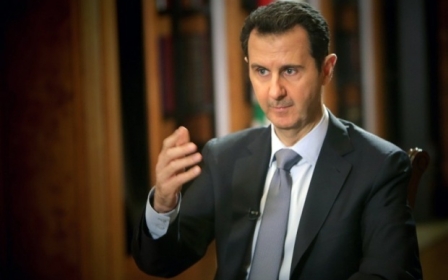Putin slams refusal to work with Syria as 'enormous mistake'

Russian President Vladimir Putin on Monday called for a "broad coalition" to fight the Islamic State group in Syria, in his address to the UN General Assembly.
Putin likened the coalition to the "anti-Hitler" alliance that fought together during World War II and said Muslim countries "should play a key role".
"We must address the problems that we are all facing and create a broad anti-terror coalition," Putin said in his address, his first to the world body in a decade.
Putin took to the podium after US President Barack Obama offered to work with Russia and Iran on ending the carnage in Syria, but slammed support for Syria's Bashar al-Assad.
The Russian leader took aim at the West's refusal to cooperate with Assad's forces to stamp out the Islamic State, which now controls huge swathes of territory in Syria and Iraq.
It is an "enormous mistake to not cooperate with the Syrian group which is fighting the terrorists face-to-face," he said.
"We must acknowledge that nobody other than President Assad's armed forces are truly fighting the Islamic State and other terrorist organizations in Syria," Putin added.
Washington has insisted that Assad must leave power as a pre-requisite for any settlement to the conflict, while European powers have softened their stance, signalling he could stay on in an interim role.
Putin was due to hold his first meeting with Obama in over two years later Monday, on the sideline of the world gathering.
Iranian President Hassan Rouhani was also expected to defend Tehran's support for Assad in his address to the assembly later on Monday.
Stay informed with MEE's newsletters
Sign up to get the latest alerts, insights and analysis, starting with Turkey Unpacked
Middle East Eye delivers independent and unrivalled coverage and analysis of the Middle East, North Africa and beyond. To learn more about republishing this content and the associated fees, please fill out this form. More about MEE can be found here.




